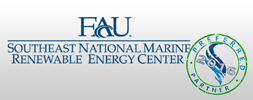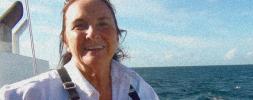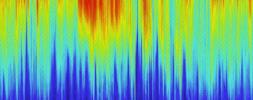The SNMREC Preferred Partner Program is an opportunity for our industry partners to collaborate more fully with the Center. This program is designed to dedicate SNMREC experts and resources to individual industry partner development needs.
Curriculum Development
A SNMREC High School Science Curriculum was developed to enhance interest in: science, mathematics, engineering and technology, and to support improvements in education for students from K-12 with original curriculum and teacher workshops. The SNMREC promotes the importance of the renewable ocean energy industry, while highlighting the importance of clean energy alternatives for our local and national community. Energy from Ocean Currents: The New Renewable is a curriculum developed for secondary students, funded by the US Department of Energy, and was developed specifically for 11th and 12th grade students. The curriculum was established based upon 5 E's, an instructional teaching model using the constructivist approach that fosters inquiry-based thinking.
The 5 E's:
- Engaging the Learner
- Exploring the Concept
- Explaining the Concept
- Elaborating the Concept
- Evaluating the Learner
There are six comprehensive lessons built around scientific facts relating to the SNMREC's research and aligned with Florida Sunshine State Standards benchmarks, with hands-on activities reinforcing each lesson. One such activity was building a generator from a soda can to demonstrate an induction coil alternating current generator. The lessons also included a "Meet the Scientist" PowerPoint presentation that features a SNMREC engineer or scientist. The titles of completed lessons are:
- Why Do We Need Renewable Energy?
- How is Electricity Generated?
- How Do We Identify Ocean Currents with the Best Potential for Producing Energy?
- Harnessing Energy from Ocean Currents: The New Renewable.
- What are the Environmental Impacts of Ocean Energy?
- The Future of Ocean Energy?
The curriculum has been introduced to more than 120 teachers from five counties in South Florida (Dade, Broward, Palm Beach, Martin, and St. Lucie) in eight workshops in the first year (2010-11). Teachers who participated in the pilot workshop implemented the curriculum with their classes and gave valuable feedback. They also participated in the second and third workshops as facilitators. Each teacher received in-service credits from their school district. They completed a pre and post test at the workshop and an online survey after utilizing the lessons in their classrooms. e feedback by participating teachers was very positive. The second year of the program continues in 2011-12 to reach additional teachers and incorporate enhancements to the original curriculum.



